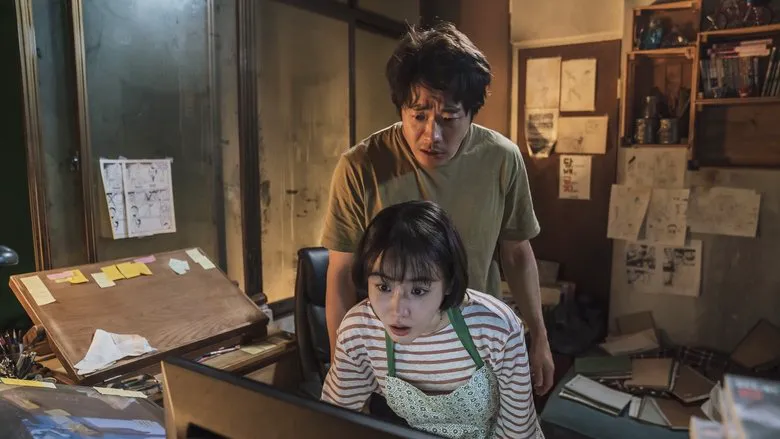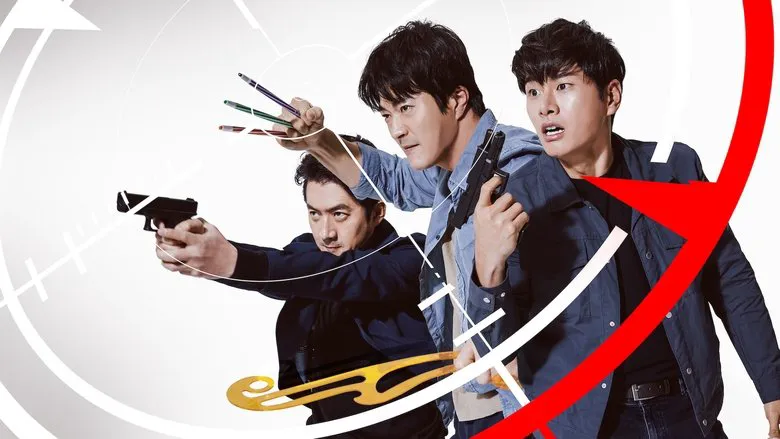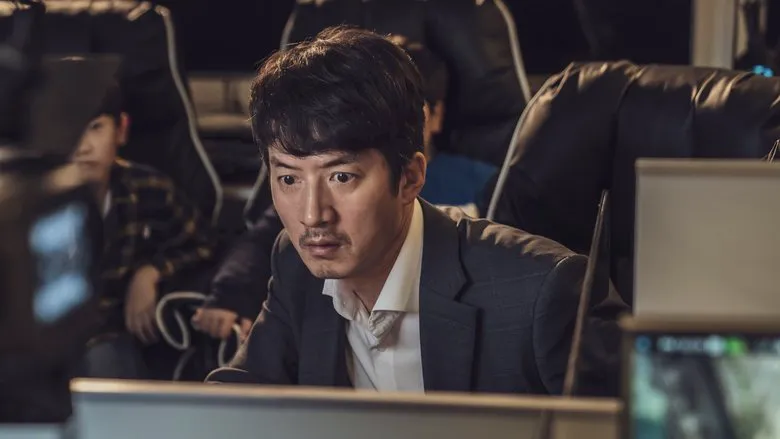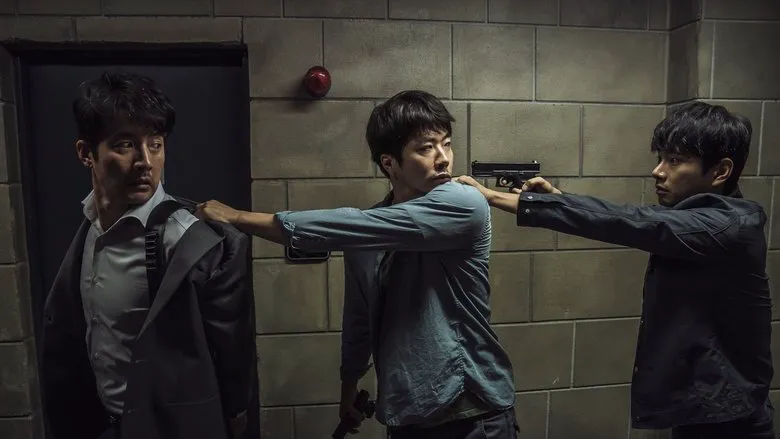The Spy Gone North: A Masterclass in Subtlety and Suspense
In the realm of South Korean cinema, few films navigate the treacherous waters of geopolitical espionage with the nuance and depth of “The Spy Gone North,” known internationally as “The Work” or “North Wind.” Directed by Yoon Jong-bin and released in 2018, this cinematic triumph redefines the spy thriller genre by largely eschewing explosive action in favor of psychological tension, intricate plotting, and profound character development. Set against the backdrop of the mid-1990s, a period of heightened inter-Korean tensions, the film intricately weaves a story of a South Korean agent’s perilous mission to infiltrate the North Korean regime and uncover its nuclear aspirations. Lauded for its gripping narrative and compelling portrayals, it earned an impressive 8.7 rating on Douban, celebrated fittingly as “a spy epic without gunfire.”

A Deep Dive into the Tense Espionage Mission
The heart of “The Spy Gone North” lies in the extraordinary journey of Park Seok-young, portrayed with understated brilliance by Hwang Jung-min. Operating under the highly sensitive codename “Black Venus,” Park is a veteran agent of the South Korean National Intelligence Service tasked with the seemingly impossible: penetrating the tightly guarded inner circles of North Korea to gather critical intelligence on their clandestine nuclear weapons program. To achieve this, he seamlessly adopts the persona of a savvy South Korean businessman, meticulously cultivating a relationship with Ri Myung-woon (Lee Sung-min), a prominent North Korean official responsible for external economic affairs.
Through a series of carefully orchestrated maneuvers, including assisting struggling North Korean businesses and navigating complex financial dealings, Park incrementally earns Ri’s trust. This slow, deliberate process of infiltration is where the film truly shines, illustrating the painstaking patience and immense risk involved in long-term espionage. As their bond cautiously grows, Park’s efforts eventually culminate in a rare and pivotal opportunity: a direct meeting with none other than Kim Jong-il himself, a testament to his successful deep cover operation.

An Unlikely Alliance Forged Amidst Political Intrigue
As Park delves deeper into his mission, the stakes soar, and his path is fraught with layers of political deception. Under the guise of scouting potential locations for lucrative commercial shoots, he manages to gain access to North Korea’s purported nuclear facilities for “inspection.” Yet, instead of just confirming nuclear activity, he stumbles upon a far more shocking and sinister conspiracy: the ruling party in South Korea is secretly funding North Korea to deliberately escalate tensions along the border. The nefarious goal? To undermine any nascent efforts towards reconciliation between the two nations, ensuring the stability of the ruling party through artificial external threats.

Simultaneously, the internal power struggles within North Korea intensify, creating a volatile environment. Jung Moo-taek (played by Ju Ji-hoon), a shrewd security official, becomes increasingly suspicious of Park’s true identity, raising the imminent threat of exposure and placing Park in grave danger. The film expertly builds tension, as Park must not only contend with his primary mission but also navigate this treacherous political minefield and avoid detection from those closest to him.

Unveiling a Shocking Betrayal and Mounting Peril
The revelation of the South Korean ruling party’s treachery adds a profound layer of moral ambiguity to Park’s mission, transforming it from a straightforward espionage operation into a desperate gamble for peace. With his life hanging by a thread, Park finds himself caught between opposing loyalties and deeply ingrained suspicions. The growing distrust from Jung Moo-taek serves as a constant, looming threat, making every interaction and every move a potential step towards discovery and certain death.

The Climactic Confrontation and Dangerous Escape
The narrative crescendos into a nail-biting climax where Park, remarkably accompanied by Ri, confronts Kim Jong-il directly. In a scene brimming with raw tension and desperate idealism, they passionately argue against the deliberate instigation of border conflicts, advocating instead for the easing of hostilities. Despite their courageous efforts and the persuasive logic of their plea, the delicate facade of Park’s cover finally shatters. His true identity is exposed, initiating a desperate and perilous flight from North Korea. The escape itself is a testament to the character’s training and resolve, underscoring the relentless danger of his chosen profession.

Throughout his harrowing journey, Park endures immense physical and psychological trials, constantly pushed to the brink as he strives to escape the clutches of the Northern security apparatus.

A Legacy of Reconciliation: Bonds Beyond Borders
In the aftermath of these tumultuous events, the film unveils a surprisingly hopeful, albeit melancholic, resolution. While Park’s individual mission ends dramatically, the combined efforts of these two “heroes” from opposing sides — one a South Korean spy, the other a North Korean official — demonstrably influence the subsequent easing and development of inter-Korean relations. Their actions, though initially motivated by national interests, ultimately contribute to a greater stability in the volatile peninsula.
Ten years later, in a poignant and deeply moving scene, Park and Ri meet again, their paths crossing in a quiet, unofficial encounter. In this touching reunion, devoid of the espionage and political intrigue that once defined their relationship, they finally acknowledge and genuinely appreciate the profound bond they forged under extraordinary circumstances. A silent exchange occurs: one proudly displays his watch, while the other reveals his badge, simple yet powerful symbols representing their past identities, shared sacrifices, and a connection that transcends geopolitical divisions.

The film culminates with a powerful visual sequence: scenes of cultural exchange between the two Koreas projected onto a grand screen. This serves as a potent metaphorical encapsulation of “The Spy Gone North”'s enduring message — that beneath layers of political conflict and ideological divides, understanding, humanity, and the potential for reconciliation can ultimately prevail. It is a compelling narrative that challenges conventional spy genre tropes, proving that the most impactful battles are often fought not with bullets, but with intricate webs of trust, betrayal, and the Quiet courage of human connection.